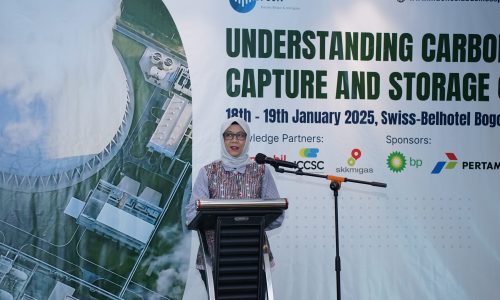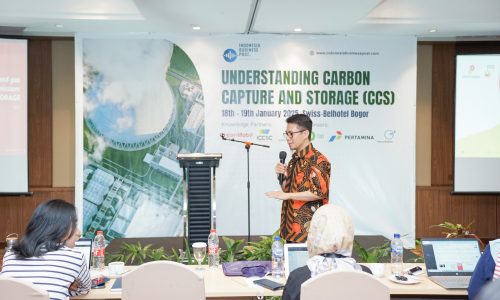The government’s ban on the bauxite ores export is likely to increase investments in the bauxites processing and refining industry. Economist at the Yogyakarta-based Gadjah Mada University Fahmi Radhi said one of the challenges faced by the government after the ban would be the limited bauxites smelters capacity.
On the bright side, he added, bauxite businesses – including companies, consortiums of companies and joint venture of smelters investors – would have to build smelters to cope with the challenges.
“The government should provide fiscal incentives such as tax holiday, tax allowance, and free of import duty for smelters equipment,” Radhi told Indonesia Business Post on December 23, 2022.
On December 21, 2022, President Joko “Jokowi” Widodo announced that Indonesia would start banning the export of bauxite ores starting June 2023 to encourage the development of bauxite processing and refining industry at home.
Bauxite smelter projects
According to the Investment Coordinating Board (BKPM), there are currently five ongoing bauxite projects in Indonesia. Two alumina refineries have been operating, namely PT Well Harvest Winning (Smelter Grade Alumina Products) and PT Indonesia Chemical Alumina (Chemical Grade Alumina Products). In addition, there is a total investment of IDR 73.3 trillion for five bauxite smelter projects in West Kalimantan:
- PT Borneo Alumina Indonesia in Mempawah
- PT Kalbar Bumi Perkasa in Sanggau
- PT Dinamika Sejahtera Mandiri in Sanggau
- PT Laman Mining in Ketapang
- PT Well Harvest Winning Alumina Refinery (Expansion) in Kendawangan
Radhi said the Law No. 4 /2009 on mineral resources and coal mining had mandated the ban on raw mineral export without domestic processing and refining at least before 2014. When the law went into effect, there were many investors showed their interest to put their money in the smelter industry. However, due to opposition from mining companies – including gold and copper mining giant PT Freeport Indonesia who threatened to file a lawsuit at the World Trade Organization against the government – then President Soesilo Bambang Yudhoyono’s administration bowed down and delayed the enforcement of the export ban.
“That made investors [in smelter industry] disappointed,” Radhi said.
Read also: Jokowi insists to promote downstream nickel industries despite loss at WTO
Starting January 1, 2020, the government has banned the export of nickel ores. This decision is followed by the ban of bauxite ores. Jokowi has argued that the ban of bauxite ores export is to increase the added value of the mineral resources, open jobs opportunity and increase Indonesia economic growth. The ban is also to optimize the natural resources proceeds for the prosperity of Indonesians as mandated by Article 33 of the Constitution.
“In the short term, the bauxites ores export ban will reduce the revenue from export to IDR 21 trillion per year. However, in the long run, following the increased added value, the export of downstream and derivative products of bauxites will increase the state revenue to IDR 62 trillion per year. It is not easy to secure such additional income through bauxites export ban. There are still challenges and opposition,” Radhi explained.
Industry roadmap
The Energy and Mineral Resources Ministry’s Director General of Coal and Mineral Ridwan Djamaludin said that in the development of bauxite and aluminum roadmap, the government would first increase bauxite reserve resilience and optimize ore production. To accomplish this, the government needs to increase bauxite exploration activities and convert more resources into reserves.
Secondly, the government will optimize and improve the metal processing and purification industry by expanding alumina smelters to process domestic bauxite and increase the absorption of alumina products such as smelter grade alumina and commercial arrangements, as well as importing raw materials to meet aluminum raw material needs.
Read also: Counting the days for minerals ore export total ban
The third step is to develop the aluminum intermediate products industry for battery cells, electric vehicles, NRE (new and renewable energy) and other technologies.
The final step is by optimizing domestic consumption and introducing a recycling system. Automobiles, construction, cables and aircraft will be among the industries that consume aluminum products domestically. As part of this initiative, aluminum recycling systems will be developed through scrap collection, sorting, processing and the development of secondary aluminum industries.
Copper and tins
The Association of Indonesian Mining Professionals (Perhapi) Chairman Rizal Kasli said that Jokowi has indicated the export ban of copper ores. However, he said it would be impossible to ban the export of copper ores in June 2023 because PT Freeport Indonesia promised to complete its smelter construction in 2024. Meanwhile, PT Amman Mineral Nusa Tenggara would complete its smelter in 2023.
“If the government bans the export, where will the companies bring the production of concentrates? It is impossible,” he said.
Kasli, who previously worked at Freeport, said if the Freeport’s warehouse was full, the company would terminate production. The capacity of Freeport storage is 1 million tons. He said it would be unlikely that the government would ban the export of copper concentrate in 2023. There will be a relaxation for Freeport and Amman Mineral to export their copper concentrates.
Kasli said that the copper downstream industry still needed copper cathode produced by the two companies. During this time, most of the copper needs are still imported from other countries including for electric and electronic cables. “The markets and the demand are still huge,” he added.
The government also needs to encourage the development of domestic downstream industry.
“It should not happen that we have produced cathode and everything else but they cannot be absorbed by domestic market,” he explained.
Read also: Government relies on abundant natural resources to face 2023 global economic crisis
For tins, Kasli said that it is more possible for the government to ban the export of tin ores in 2023. The tin industry has developed the derivative industry. However, there is still a gap between domestic production of tins and domestic market. The government needs to further explore the domestic market of tins. “Otherwise, the tin companies will stop production. If the production stops, it will be a loss for all of us,” he added.
The government should also encourage and monitor the development of tins derivative industry at home including easing and accelerating the permits. “We should not let licensing process deter the industry as the process is fast in the government but much slower in the local administrations,” he said.









